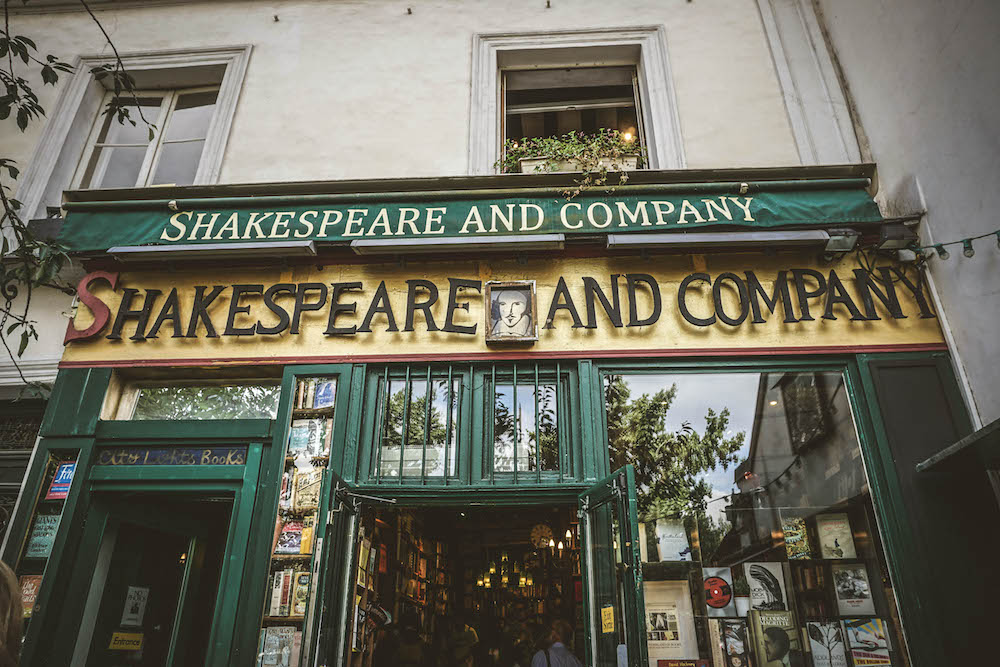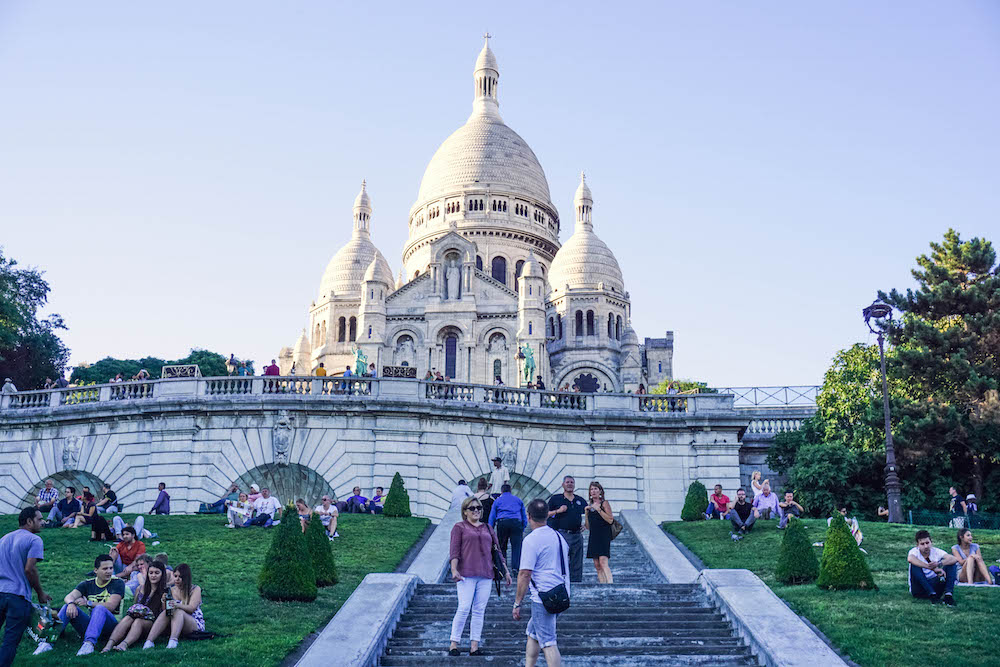Quoi de beau?
Quoi de beau? is a French greeting equivalent to “what’s up?” but literally translated, it means “what of beauty?” I’m a sucker for poetic phrases in the commonplace. Also, since I’m sure many of your are curious on what exactly is up with me this year, I thought I would write a short briefing on my fellowship and what I’m doing here in Paris.
 Here is a nice picture from the Shakespeare & Co. bookstore before we dive right in.
Here is a nice picture from the Shakespeare & Co. bookstore before we dive right in.
The elevator pitch
I am spending my year studying Chinese immigrant art in Paris. For the first half of my year, I am following in the footsteps of famous traditional Chinese artist Xu Beihong who spent ten years in Paris and Europe. For the second half of my year, I plan to use the social sciences lens of oral histories to interact with members of the current Chinese migrant artist community in Paris. I’m somewhere in between a legit researcher, a grad student, and a starving artist.
My art background
I started learning traditional Chinese calligraphy in kindergarten, when I was four or five-years-old. My teacher was an art professor at a university in Shanghai. I heard about Xu Beihong because he was from the same small village as my parents, my 老乡 of 宜兴 (Yixing). When I moved to the US after the second grade, I continued to take classes at various Chinese schools up until college. But there weren’t many teachers in surburban New Jersey and so I just learned new styles on my own but pretty much stuck to calligraphy. In college, before the House renovations, many studio spaces weren’t open unless I took art classes and I found it difficult to find time in my schedule to take a time-intensive art class. So, my training is primarily in traditional Chinese calligraphy but traditional Chinese painting also uses the ink and rice paper medium and, historically, the two have been closely intertwined with art and literary studies.
My social sciences background
I took what became my favorite class at Harvard in my last semester there. It was an eight person Social Studies seminar called the Chinese Immigrant Experience in the US. This was an experiential-learning class that integrated a weekly volunteering program with Boston’s Chinatown for each student. I found the readings very personally relatable as an immigrant myself and taking the class helped me come to terms with the frustration, guilt, pride, and appreciation that I have for different parts of my identity. It is a privilege to live in a time and study at an institution where I have a choice in what aspects of my identity I choose to identify with and how I choose to advocate for it. But anyway, the final project for the class was to collect an oral history and I completed mine on a long-time resident of Chinatown. I see a lot of value in the–perhaps somewhat romanticized–idea of collecting an individual’s history, and I know as a child and grandchild, I would love to have access–for myself and my children–to the stories of my parents and grandparents without the language and cultural barriers.
Why this is important to me
With my new-found understanding of the forces shaping my immigrant identity, I hope to discover new inspirations for my art. Traditional Chinese art is meditative in many ways because of the medium and the related ideology in an individual’s 气. At the conclusion of my college years and at the cusp of starting a career, I hope to take some time to self-care. I plan to challenge myself to define art as self-expression and re-examine how I want to spend my time. I regret not having spent more time on my art during college and I hope this year will help me become more informed as an art-lover and more versatile as an artist. From the social sciences perspective, I hope to learn more about the experiences of people who made similar decisions as my parents to give up everything they had, start a new life, and live on, knowing that they will not be as successful, or wealthy, or even happy as if they had stayed put. I can never fully fathom that kind of sacrifice but I hope learning more about it will allow me to appreciate if only a partial picture.
 Visual break: this is of the La Basilique du Sacré Cœur de Montmartre in the north of Paris. Amélie is one of my favorite movies and, for those of you who have seen it, a lot of the scences take place in Montmatre!
Visual break: this is of the La Basilique du Sacré Cœur de Montmartre in the north of Paris. Amélie is one of my favorite movies and, for those of you who have seen it, a lot of the scences take place in Montmatre!
FAQs
Some frequently asked questions that I could foresee:
-
What is a traveling fellowship?
The Harvard Gardner Postgraduate Traveling Fellowship, as the full name of my fellowship is called, serves to fund one year of meaningful travel right after college. I am formally not allowed to be held to an institution or advisor’s expectations and so I am not allowed to enroll as a student, work, or do research. My proposal for my project is briefly described above, and the purpose of the fellowship is to elicit an experience that was not possible at my time at Harvard and that is fundamentally different from my concentration. -
What are you doing after this year and how is this related to it?
I have signed with an education-tech startup called Coursera and I will be working full-time as an Android engineer starting next summer. They are amazing in a lot of things, but especially in letting me defer my start day by a year. On the superficial level, my fellowship this year is not at all related to my work as a software engineer. But this time of meditation and self-care will leave me with much better sense of my values and goals, adapting to a foreign language and environment will challenge me to learn and change constantly, and a different understanding of what it means to “learn” can help me understand the role of technology in education. -
Why Paris?
Aside from the reason above that Xu lived in Paris, it was also convenient that 1) I have never been to Europe 2) Paris is historically a mecca for Western art 3) I’ve studied French for seven years in middle school and high school but have never been in an environment that used it. I do think I’m coming in with a very romanticized idea of living in Paris but part of this year is very much to challenge that idea. -
Are you doing anything with CS during this year?
Probably. I plan to, at least. I will try to set aside some time to do side projects or contribute to open source. I also think interactions with the user base in Europe will help me understand the Android audience much better.
That’s it for the briefing! Hope this answered your question of “quoi de beau de cette année?”
